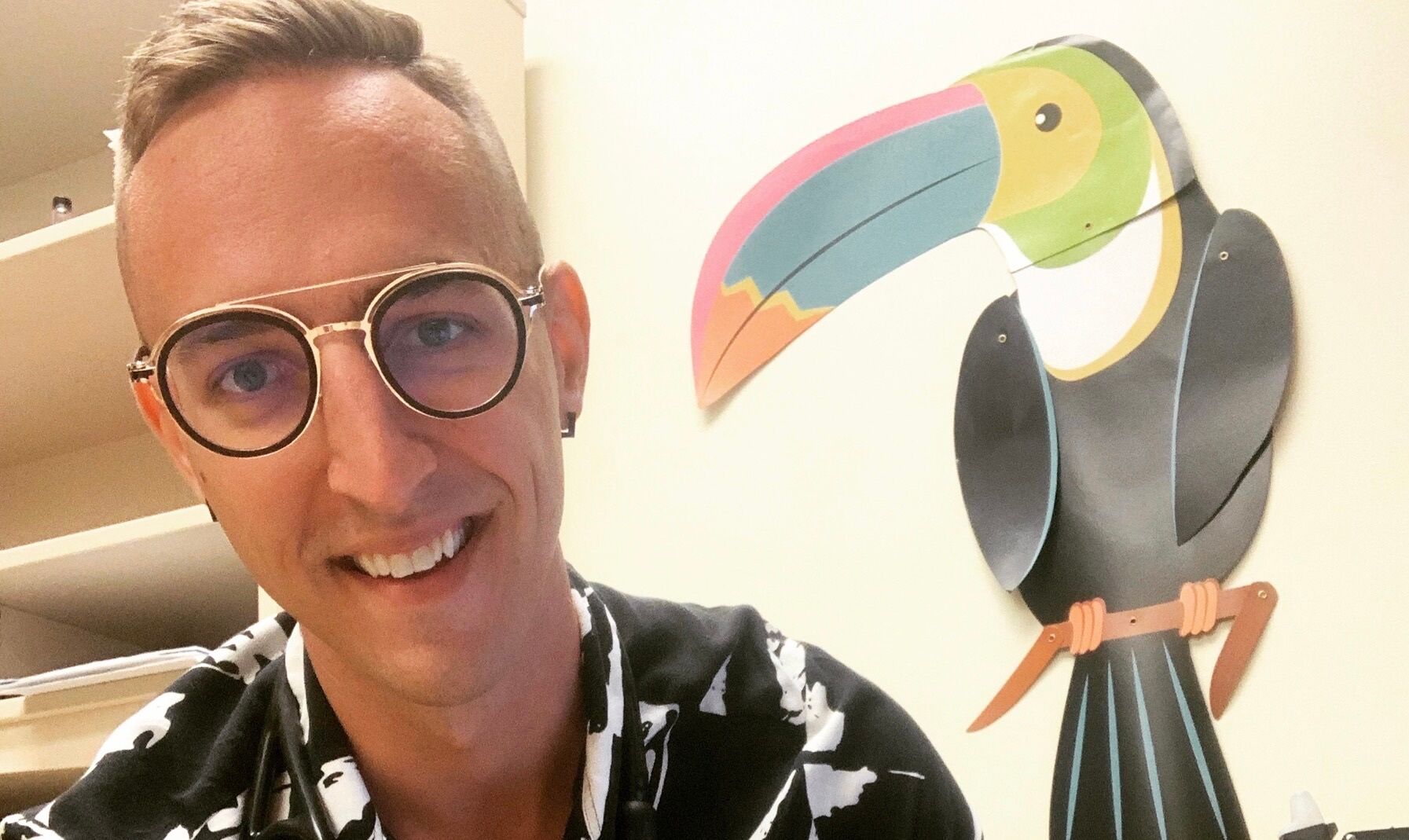
When Dr. Jon was in medical school, he had trouble finding queer-friendly doctors. His schooling required him to move to new cities often, and it took him a while to find local doctors who he felt comfortable opening up to. A few times, he even left clinics feeling judged and stigmatized just for being gay.
That’s when he decided to start educating other medical providers on LGBTQ+ cultural competency. Now a primary care doctor himself, he goes by “ThatGayDoctor” on TikTok and Instagram. There, he shares humorous and informative videos that educate doctors and patients about his profession, must-know info about COVID and MPOX, and strategies for addressing potentially sensitive issues (like sexually transmitted infections).
In his videos, Dr. Jon has fun and friendly energy highlighted by his own unique personal flair. He wears dazzling print shirts, wild ties, tight capri pants, and eye-catching socks that, he says, help identify himself as LGBTQ+ and reassure other queer people that it’s okay to express themselves, even in professional medical settings.
“I never want patients to avoid getting necessary care due to fear,” he says. “Our healthcare needs are not always prioritized, and [we] need to use our voices to advocate for access to treatment.”
LGBTQ+ people are drawn to medicine and other caretaking professions, he says, because they know what it’s like to lack support systems, both in their own families and society at large. The HIV and other epidemics impacted the queer community more heavily than others, he adds. These epidemics taught queer people the importance of banding together and sharing resources and information to become our own best healthcare advocates.
Dr. Jon now lives in Chicago, where he works with underserved populations. He encourages doctors to promote databases of LGBTQ+-friendly providers (like the GLMA’s LGBTQ+ Healthcare Directory), and patients to report instances of healthcare discrimination. He also uses his social media to advocate for universal healthcare and speak against legislation that restricts LGBTQ+ medical access.
Over time, he’s found fulfillment in improving others’ lives and establishing his own “chosen family” of supportive friends and colleagues. He knows there’s a lot of work left to be done, but together, they’re building a world where everyone can feel welcome and empowered to get the care they need.
“I’m a firm believer that healthcare should be a right, not a privilege,” he said. “Nobody should have to consider the cost of something when it’s needed for their health.”
This content was originally published here.



Comments are closed, but trackbacks and pingbacks are open.